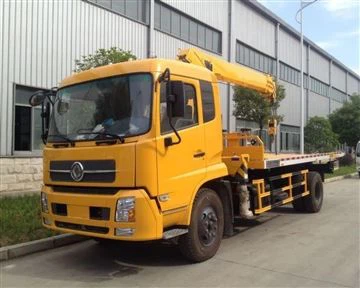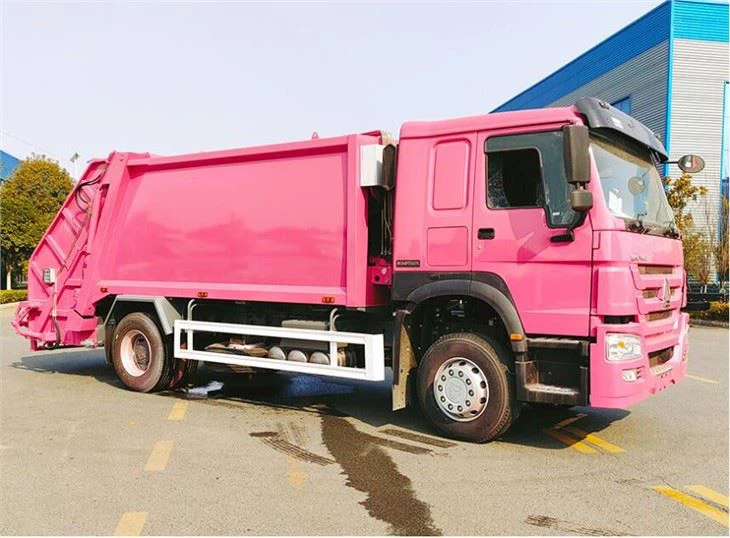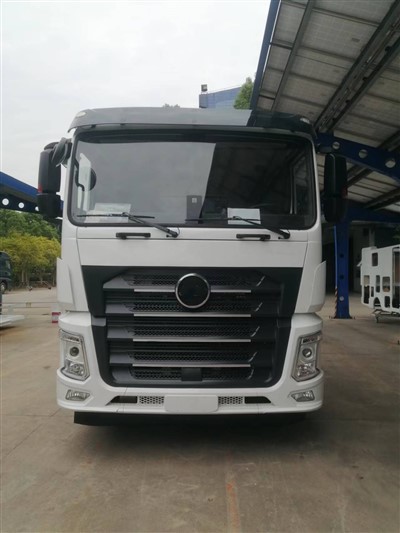Trash Trucks in Action: Understanding Their Role and Impact in Our Communities

As essential vehicles in our urban environments, trash trucks play a vital role in maintaining public health and cleanliness. Every day, they traverse our neighborhoods, picking up waste and contributing to the overall well-being of our communities. This comprehensive article examines trash trucks in action, delving into their types, functionality, environmental impact, and tips for effective waste management.
The Importance of Trash Trucks in Our Daily Lives
1. Waste Collection: A Community Essential
Trash trucks are the backbone of our waste collection system. Without them, the accumulation of garbage would lead to unsanitary conditions, public health risks, and decreased quality of life. Each household generates waste that needs proper disposal, and trash trucks ensure that this waste is collected and processed efficiently.
2. Types of Trash Trucks

Trash trucks come in various models, each designed for specific waste collection needs.
Types of Trash Trucks
| Type of Truck | Description |
|---|---|
| Front-Loaders | Used for commercial waste collection; features a fork lift at the front for loading bins. |
| Rear-Loaders | Commonly used for residential areas; allows ease of trash pick-up from behind the vehicle. |
| Side-Loaders | Operates on a hydraulic system; collects waste from the side, often automated. |
| Roll-off Trucks | Ideal for construction sites and large clean-ups; offers a detachable container system. |
| Compaction Trucks | Compresses waste to maximize load capacity and reduce trips to disposal sites. |
Specific Use Cases for Trash Trucks
Understanding the types of trash trucks helps to appreciate their specific applications:
- Front-Loaders: Ideal for commercial waste, such as restaurants or grocery stores.
- Rear-Loaders: Common in residential areas for regular household garbage collection.
- Side-Loaders: Increasingly popular for automated collection methods, enhancing efficiency and safety.
- Roll-off Trucks: Perfect for temporary waste disposal needs during renovations or construction projects.
- Compaction Trucks: Used in high-density areas where space is limited.
How Trash Trucks Operate
1. The Collection Process
The operation of trash trucks involves multiple steps. Let’s break down the collection process:
- Preparation: Waste bins are placed curbside, ready for collection.
- Pickup Schedule: Most communities have designated days for garbage, recycling, and yard waste collections.
- Route Planning: Drivers use efficient navigation systems to minimize time and fuel consumption.
- Loading Waste: Depending on the type of truck, loaders either lift bins or manually throw waste into the truck.
- Waste Compaction: In compaction trucks, waste is compressed to maximize space.
- Transport: After collection, trucks transport the waste to disposal sites or recycling facilities.
2. Technologies Used in Trash Trucks
Modern trash trucks are equipped with various technologies to enhance their efficiency and reduce environmental impact:
- GPS Tracking: Enables real-time monitoring of routes, improving logistics and efficiency.
- Automated Collection Systems: Reduces the need for manual labor by using arms to pick up waste bins.
- Telematics: Provides data on truck performance, maintenance needs, and fuel efficiency.
- Electric and Hybrid Models: These trucks are quietly revolutionizing the waste management sector by reducing emissions.
Environmental Impact of Trash Trucks

1. Emissions and Air Quality
With growing concerns over air pollution, the environmental footprint of trash trucks comes into the spotlight. Traditional diesel engines emit various pollutants. However, advancements in technology are changing the landscape:
- Transition to Cleaner Fuels: Many municipalities are investing in cleaner-burning technologies, such as natural gas.
- Electric Vehicles: Electric trash trucks produce zero tailpipe emissions and are quieter, reducing noise pollution.
2. Waste Management and Recycling
Trash trucks not only transport waste but also play an integral role in recycling efforts:
- Separation Systems: Some modern trucks are equipped with dual compartments to separate recycling from general waste.
- Educational Initiatives: Many waste management companies provide educational materials during pickups to promote recycling.
Best Practices for Waste Management
1. Maximizing Waste Diversion
Individuals and communities can take various steps to improve waste management:
- Participate in Local Recycling Programs: Make sure to dispose of recyclables according to community guidelines.
- Composting: Composting organic waste reduces landfill contributions and enriches garden soil.
- Proper Waste Segregation: Keeping waste streams separated helps enhance recycling rates.
2. Education and Awareness
Raising awareness about waste management is essential for its success:
- Community Workshops: Organize workshops on waste reduction strategies.
- School Programs: Implement educational initiatives targeting young individuals to promote sustainability.
Innovations in Trash Truck Operations
1. Automated Collection Systems
Automated systems have revolutionized the way waste is collected. Advantages include:
- Increased efficiency in collection;
- Reduced risk of injury for sanitation workers;
- Lower fuel consumption due to optimized routes.
2. Smart Waste Management Systems
Emerging technologies, such as IoT (Internet of Things), are enhancing waste management capabilities:
- Smart Bins: Equipped with sensors that signal when they are full, leading to more efficient collection routes.
- Data Analytics: Analyzing waste production patterns helps communities plan better waste management strategies.
Engaging the Community on Waste Management
1. Community Cleanup Initiatives
Organizing cleanups fosters community involvement and raises awareness:
- Plan regular community days focused on litter collection.
- Encourage participation through local incentives and recognition programs.
2. Partnerships with Local Businesses
Local businesses can play a significant role in waste management through:
- Participating in recycling programs;
- Offering discounts for customers who bring reusable bags or containers.
Frequently Asked Questions about Trash Trucks
1. How often do trash trucks come to my neighborhood?
Typically, most neighborhoods have designated trash collection days. Some areas may have pickups once a week or bi-weekly for recycling and yard waste.
2. What is the best way to prepare my trash for pickup?
To prepare your trash for collection, make sure to place it in sturdy bags or bins, follow local guidelines for separating recyclables, and ensure items do not block sidewalks or roads.
3. Are there different trash collections for recycling and yard waste?
Yes, many communities schedule separate collections for trash, recycling, and yard waste to efficiently manage waste streams.
4. How can I find out about local recycling programs?
You can find information about local recycling programs through your city’s or county’s waste management website or by calling your local environmental services department.
5. What should I do if a trash truck does not pick up my garbage?

If you notice that your garbage has not been collected, check your local waste management website for delays or schedule changes, and if issues persist, contact your local waste management service.
6. What happens to the waste after it is collected by trash trucks?
After collection, waste is taken to landfills, recycling centers, or composting facilities, where it is sorted, processed, or disposed of in an environmentally responsible manner.
